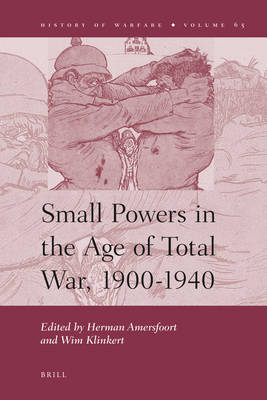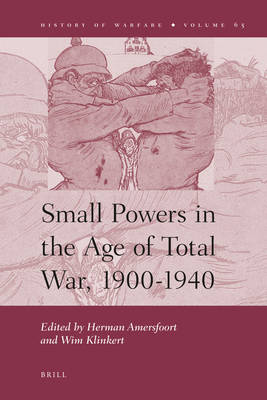
- Afhalen na 1 uur in een winkel met voorraad
- Gratis thuislevering in België vanaf € 30
- Ruim aanbod met 7 miljoen producten
- Afhalen na 1 uur in een winkel met voorraad
- Gratis thuislevering in België vanaf € 30
- Ruim aanbod met 7 miljoen producten
Zoeken
Omschrijving
Usually it is a foreign military threat or the geopolitical position of a country that attracts the most attention as a factor to explain the emergence of the national security policies of small, neutral powers like the Netherlands, Belgium, Denmark, Norway and Switzerland in the period 1900-1940. While these factors may explain the similarities between these small states, they fail to make clear why there were such great differences between them. The authors of this volume argue that the internal politics and the politico-military strategic cultures of the countries are vital keys to understanding their divergent reactions to similar, or at least comparable, foreign military threats: World War I and German expansionism in the second half of the 1930s.
The contributors are Maartje Abbenhuis, Michael Clemmesen, Kjeld Galster, Tom Kristiansen, Paul Moeyes, Williamson Murray, Michael Olsansky, Christian Paulin, Matthias Strohn, Anne Tjepkema, and Joost Vaessen.
The contributors are Maartje Abbenhuis, Michael Clemmesen, Kjeld Galster, Tom Kristiansen, Paul Moeyes, Williamson Murray, Michael Olsansky, Christian Paulin, Matthias Strohn, Anne Tjepkema, and Joost Vaessen.
Specificaties
Betrokkenen
- Auteur(s):
- Uitgeverij:
Inhoud
- Aantal bladzijden:
- 384
- Taal:
- Engels
- Reeks:
- Reeksnummer:
- nr. 65
Eigenschappen
- Productcode (EAN):
- 9789004203211
- Verschijningsdatum:
- 11/04/2011
- Uitvoering:
- Hardcover
- Formaat:
- Genaaid
- Afmetingen:
- 168 mm x 244 mm
- Gewicht:
- 771 g

Alleen bij Standaard Boekhandel
+ 322 punten op je klantenkaart van Standaard Boekhandel
Beoordelingen
We publiceren alleen reviews die voldoen aan de voorwaarden voor reviews. Bekijk onze voorwaarden voor reviews.








